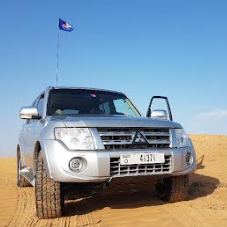-
Upcoming Events
-
CANCELLED: Morning Fewbie Desert Drive - Lisaili : GO TECH, BURN CALORIES !! - Dubai - 20 April 2024Apr 20, 2024 02:00 AM
Until 06:00 AM
-
Apr 20, 2024 02:30 AM
Until 05:30 AM
-
Apr 20, 2024 03:00 AM
Until 07:00 AM
-
Apr 20, 2024 09:00 AM
Until 01:00 PM
6 Going | 1 Manage | 0 Waitlist -
Apr 21, 2024 02:30 AM
Until 06:30 AM
-
Apr 21, 2024 03:00 AM
Until 07:00 AM
-
-
Featured Topics
-
Topics
-
Popular Contributors









Recommended Posts
Create an account or sign in to comment
You need to be a member in order to leave a comment
Create an account
Sign up for a new account in our community. It's easy!
Register a new accountSign in
Already have an account? Sign in here.
Sign In Now